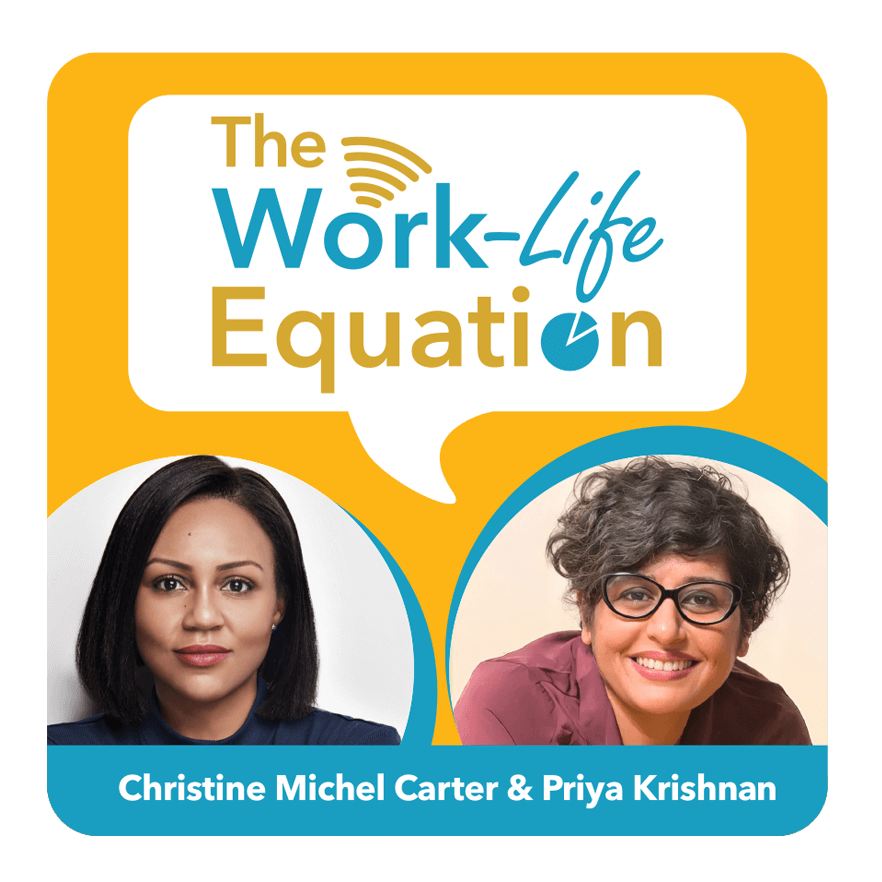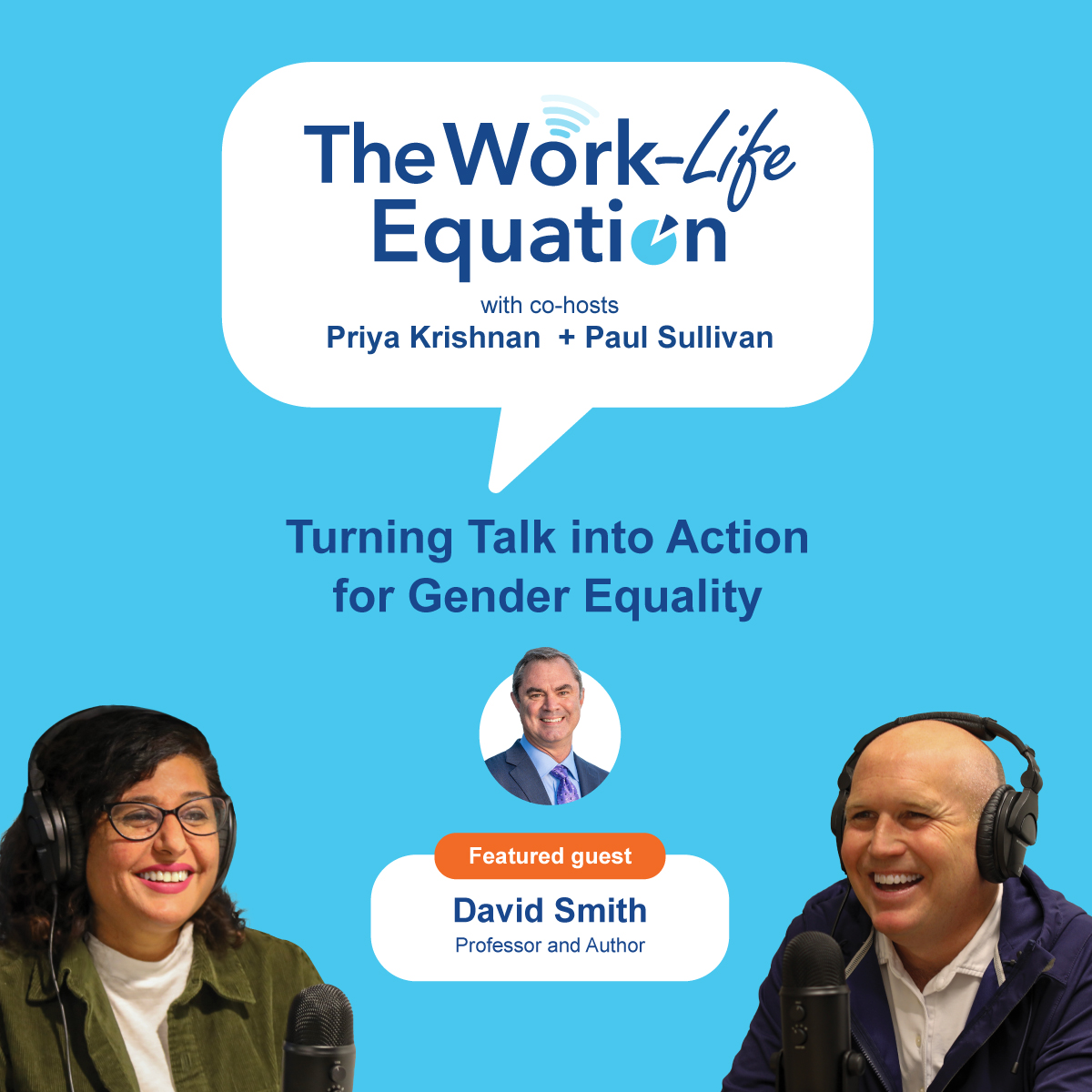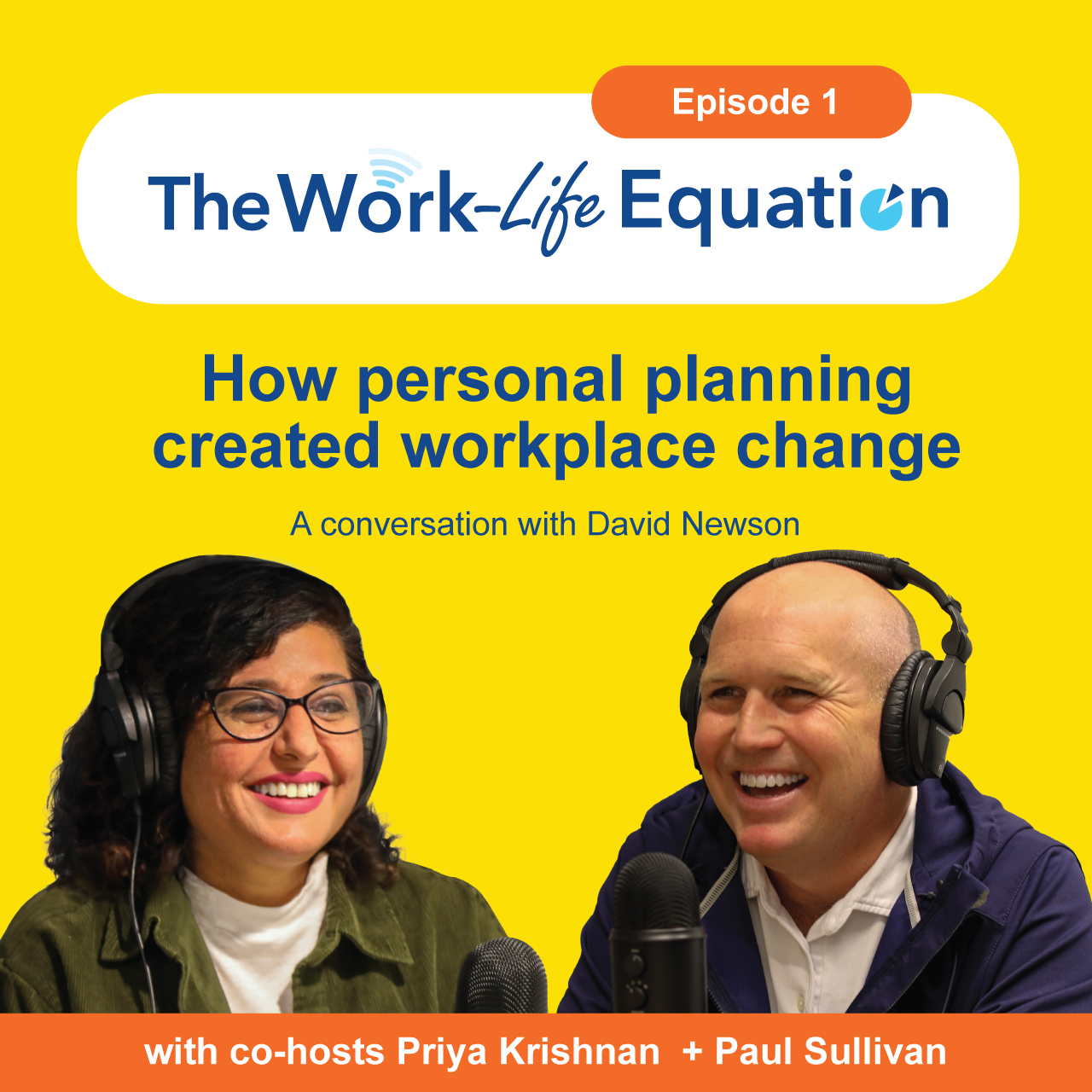Paul Sullivan needed a name.
It was 2013, and he and his wife were about to shake up their carefully orchestrated child care matrix, she diving into the launch of a new business which would limit her flexibility, he making the leap from New York Times columnist to columnist-slash-primary-caregiver-slash-go-to guy for playdates, doctor’s appointments, birthday parties, and shoulder to cry on.
He needed a job title that said what he was going to do. He decided on Lead Dad.
“My wife asked me, ‘What does that mean?’” he told us on an episode of “The Work-Life Equation” podcast. “I told her, ‘I have no idea.’”
Clearly, he figured it out. Ten years later, Lead Dad is more than Paul’s job title, it’s a mission, with the father of three now Lead-Dad-In-Chief for the enterprise (The Company of Dads) he founded in 2021 to give other dads some of the things he wished he’d had — community, coaching, consulting, workplace development, stories, and a place to have a voice. “I want more dads to be part of the work and caregiving conversation,” he told us. “Because this is not a gendered role.”
Caregiving may not technically be gendered, but it isn’t equal opportunity, either. A quick surf online shows just how not equal, with dads reporting how difficult it is to be seen as anything other than helper. It’s gotten better (at least advertisers have largely abandoned the “doofus dad” trope), but society seems still baffled about what to do with dads who are primary parents. Even as dads — particularly young Millennial and Gen Z — try to take on more of the parenting load, they’re stuck in second-banana status, often dismissed with titles like daddy-mommy or babysitter, or worse, that irksome title from the 1980s Michael Keaton movie — the one that makes a cameo on Paul’s “About Me” page: “Don’t call me Mr. Mom.”
Yet more and more dads want to fill the Lead Dad role. And there are a whole lot already out there — Paul estimates about 20 million who qualify for the title. Trouble is how to find them. Moms may connect organically, but dads not so much. Maybe that’s because Lead Dads aren’t exactly blasting the gig from the rooftops. “I never walked around my town saying, ‘Hello, Paul Sullivan, Lead Dad,’” he told us with a laugh. Once, he remembers blaming poor cell service for hanging up on an important business call with a government official, preferring to plead tech fail over confessing he needed to take an emergency call from his kids’ pediatrician — something he chalks up to insecurity. His sign-off from the New York Times — the day he made The Company of Dads his main focus — was the first time he fessed up publicly to his “secret” Lead Dad role. “I’ve often felt alone balancing these two amazing jobs,” he wrote.
Paul is quick to point out the obvious — that dads aren’t the only ones in the crosshairs. “Before anybody rolls their eyes,” he told us emphatically, “the motherhood penalty is way more documented, way more pronounced.” But the fatherhood penalty is real, manifesting in dads schooled to hide their own dad identities. And the thing is, that costs everyone — women and men. Gender roles are nothing if not stubborn, and Paul told us they get stickier when companies stick to the script — penalizing women professionally for having kids and rewarding men for prioritizing work. If men can only be providers and women can only be caregivers, the cycle continues, fueling old ingrained securities that feed new ones, and ensuring men keep moving up, and women keep opting out. The challenge is to break the cycle. Leaders who endorse dads in caregiver roles is one way to do that. Rank-and-file dads who are bold about their Lead Dadness is another.
“Change,” he told us about the importance of manager voices, “starts in the middle.”
With The Company of Dads, he hopes to help push things along, bringing the conversation to the national stage, and supporting individual dads with resources on friendships, jobs, and community. The outreach is already paying off. Once upon a time, Paul would have told you there were few Lead Dads in his Connecticut enclave. Today, he said, “I have found dozens and dozens of people within 15, 20 miles of me.” Progress creates more progress, with each successful caregiving story blazing the path for whoever comes next. Ultimately, change will be good across the board, leveling the playing field for everyone, whether that means moms as lead-earning moms or dads who want to be Lead Dads.
“Let's figure out what works for the family to help that family fulfill its potential,” he told us, “whatever that potential may be.”
Maybe someday in the future, we won’t even wrestle with what to call them.
Looking for advice from caregivers who've been there? Paul Sullivan joins Bright Horizons Chief Digital and Transformation Officer Priya Krishnan as cohost of season 3 of our podcast, The Work-Life Equation, where they’ll share the highs, lows, and “whoas” of working and caregiving…for everyone. Tune in!




